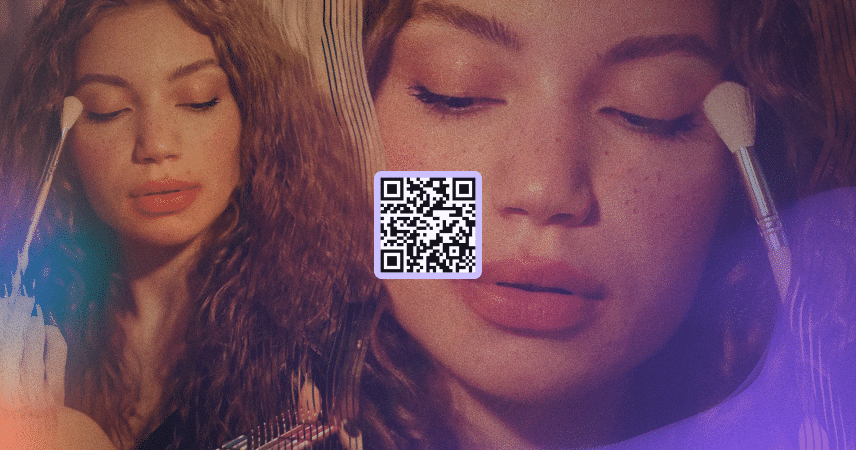So, It’s Over – Now What?

Your relationship ended. They were the only person in your relationship world, and you had such strong feelings. Now it’s over and you are pretty much heartbroken. Your self-esteem is shot, you are wallowing in some self-pity, and you just want to crawl into your bedroom and cry.
What will that solve? Nothing. So here is a guide for how to get over someone, restore your self-esteem, get you back on track and ready for future relationships. This break up is not the end. It’s the beginning of a healing process that will leave that old relationship in the dust.
It’s Like a Death
The break up of a relationship is very much like a death. What, you say? Yes, it is. Relationship experts all say this, and they further say that you will have to go through a grieving process just like someone who has lost a loved due to a death. The old adage, “time heals all wounds” is just not true. It only heals wounds if a person has gone through the process
Just what is that grieving process? Well, it comes in stages, and the length of each stage will differ for each individual.
Stages of Grief
There are 5 recognized stages of grief. While everyone who is experiencing a failed relationship will experience all of these, they will not always be in the order listed here. In fact, people who deal with the end of romantic relationships may jump back and forth among these stages. But let’s take the stages in the most common order.
Denial
This is a defense mechanism and involves denial that the relationship ended. It’s kinda a way to buffer and numb the pain. A typical statement to self goes like this: “They’re just upset right now and don’t really mean it. They’ll be back soon.” As this doesn’t happen, though, some other emotions that have been temporarily buried begin to rise to the surface. One of these is anger.
Anger
Anger is a response that is really a mask to hide other emotions. Not everyone experiences anger, but others stay here a while.
Anger can be directed at the person who caused your broken heart or even at objects or God.
You may feel anger as resentment or bitterness, as you are constantly reminded of the betrayal you are feeling. As you begin to come out of the anger stage, other emotions surface.
Typical statement during this stage? “I just hate _____(name). Hope their new life is miserable and they get dumped like they dumped me!”
Bargaining Stage
This is often known as the “if only” or “what if” stage. This is another defense mechanism to avoid dealing with sadness or hurt, and to try to change the outcome of that dead relationship.
Bargaining can take a couple of “faces.” It can be directed at yourself and your former partner. “If only I had supported them more, things would have been different, and we’d still be together.”
Or some people may bargain with God. “If you’ll take away this pain I feel, I’ll work to correct all my bad old habits and sins.”
Finally, all this emotional activity gives way to just feeling sad and a bit helpless.
Depression
Depression usually takes the form of sort of “giving up.” You are sad; you don’t want to do much of anything, and you can feel confused, lethargic, and just not clear-headed.
You avoid going out to social events and/or making new friends. In more current language, some call it a “pity party.” It’s a natural outcome of a lost relationship, but people can get stuck here.
If you do feel like you are stuck, getting some professional help would be in order. There are great relationship experts and family therapists who can help. Don’t hesitate to find one.
Example statement during this stage? “There’s just no point in even trying anymore. I’m never going to feel better.”
Emerging from depression will bring you the final stage of grief – acceptance.
Acceptance
So, do you all of a sudden have a new lease on life and just feel all better? No. Acceptance means that you know the relationship is really done for, and you stop thinking about any kind of resurrection. Your old partner is never coming back, you’re not always happy, but you are facing the reality of the matter.
This movement into acceptance also has a scientific and biological basis. There are neural pathways in our brains that control how we perceive and adapt to our environment. As you change your perception, new neural pathways are made, contributing to new behaviors. And so, part of how to get over someone is brain-based.
A typical statement for acceptance would be: “I learned a lot from that past relationship with my previous partner, and I am better off now.” You no longer focus on what went wrong or those unanswered questions you have had – they just don’t matter.
And now you can focus on getting on with your life and future.
The Nuts and Bolts of Getting on With Your Life
Learning how to get over someone and actually getting there is just the beginning. Above all, you also have to fully recover before you are ready for the next relationship. There So, let’s unpack what you should and should not do as you fully reach that goal of how to get over someone.
Remove All Physical Reminders
You probably have a number of things in your place that either belonged to them or remind you of them and your past relationship. Get rid of them now. If you need to return items, get your best friend to take care of that. House cleaning may even begin during the acceptance stage, but it must be done as soon as possible. This is not optional.
Cut Off All Communication Pathways
Unfriend or block them from all of your social media accounts. Delete their phone number and block them from your contact list. One of the biggest mistakes people make when they are trying to get over someone is satisfying their curiosity by checking their social media profiles and posts to see what they are up to. If you are doing this, you are still emotionally tied to them. Stop it now.
Avoid Mutual Friends for Now
You had a common friend group when you were together. It is not wise to continue to see them right now. They will simply be reminders and may even spend time expressing their condolences or filling you on what your ex is up to now. None of these things is good right now. You need a safe space without any remnants of that relationship. There may come a time when you can re-connect with some of them, but not right now.
Do Not Hop into New Relationships – Focus on Self-Care
This is another mistake people make when they are trying to get over someone. They think that getting right back on that horse is the cure, and so they latch onto the first person who comes along. It’s not the “cure.” Any new relationship while you are still getting over the old one will not be a healthy relationship. For some, this leads to a rather wild lifestyle of promiscuity, and that is not who you are or want to be.
This is time for self care, for rebuilding your self-esteem, and for focusing on your personal goals for the future.
Here are some self care ideas: Do some retail therapy; get a new hairstyle; buy some new clothes; maybe even take that short trip to somewhere you’ve been wanting to visit. Take up a new hobby or enroll in a course or two.
In terms of personal goals, one thing that many find helps is to make a vision board of what you want your future to look like. Start writing down how you intend to achieve those goals. One may be a future relationship goal, but others should relate to your personal and professional life. You are far more than just your role in a relationship.
Fill Your Free Time
Now that you are single, you will feel some time voids – no partner to do things with, to message, or to call. How will you fill those voids? With things totally unrelated to that mate or to any new relations, at least for a few months. Fill you time in a healthy way – join the gym, take a class, get involved in volunteer work, and get out with friends on group things, not to date.
This is a crucial time in your healing. It will help you stop thinking about the ways things used to be and to get a sense that real life is so much more than your past with that person. You’ll begin to feel confident in who you are and what worth you have to yourself and others.
Gather a Support System
You do not have to get over your hurt on your own. That can leave you stuck in the depression stage. You have friends and family who are there to listen, to encourage and to get you involved in activities that will make you feel better – activities that don’t involve a new romantic connection yet. The reality is you have to focus on yourself and your own growth and worth as a person now. And that leads to self-love.
Develop Self Love
Loving yourself must come before any other matter right now. As you get involved in things, pursue your goals, and have those successes, you can’t help but develop a sense of self-worth. That brings about confidence and self-respect.
You are on your way to becoming your best self without another person contributing to that. One of the best ways to get over someone? Grasping the reality that you don’t need them or any other relationship to make you a whole person.
Set Your Expectations for Your Next Relationship
Once you decide to start dating again, take some time to analyze what you really want in a relationship. You need to be very clear about this so you do not send mixed signals to any person you may connect with or develop relationship issues. Here are questions to ask yourself:
- Am I interested in casual dating or a long-term relationship with another person? Many relationship experts recommend casual dating at first. Jumping into a serious partnership too soon may feel like a great connection, but it will probably be for the wrong reasons.
- What are my deal breakers in a relationship? For example, you have become a bit of a new person – strong, confident, and independent. If a potential new partner cannot respect your need for independence, then that is bad news for you. You’ve spent a lot of time to get over someone who may have insisted that you focus on them not yourself; you’ve dealt with the hurt and pain of doing so. You’re not going to be treated the same way ever again. Stand your ground on this!
- How will this new person fit into your new life? What are your compatibilities and differences? Healthy relationships are built with compatibility on the big things – goals, values, belief systems, and such, not on the type of toothpaste a person uses or whether they wear socks to bed. Two independent and confident people have their own interests, hobbies, and friends apart from the relationship, and that is important. Every person in a relationship needs to able to breathe and feel like their own person outside of that relationship, and that includes you. Jealousy and possessiveness have no place in your new life.
- Do you insist on fidelity? Be clear about that from the beginning. You will not tolerate cheating, and define what cheating means to you. It may not be just bedding another person. Cheating can occur by flirting on social media, in chat rooms, and such. Be clear in your definition of the term and state it in no uncertain terms.
Now that you have set your expectations, it’s time to go about finding that future with the right person. Just what should you be looking for given the new person you are. Read on.
The Qualities You Want in a Person as Your New Self
You didn’t get over someone just to fall back into the same old partnership status. You’re a new person and you know what you want. Or do you? The details of what you are looking for may be a bit foggy for you, but it’s time to clarify what solid qualities a person should have if you are going to feel right in the connection. Here’s a list. Pick those that are important to you and stay firm.
They Have a Sense of Self that is Solid
They must know who they are and where they are going in the future. A person who knows who they are will have no trouble revealing their goals, their values, their belief systems, and exactly where they intend to be in the future.
Integrity
This quality is often referred to as a “moral compass.” It means a person has a set of core values that guide their actions in all situations. In short, they are true to themselves and act accordingly. This is an important quality if you are looking for someone who will always be consistent in how they treat you, others, and themselves.
Emotional Strength
There are times when either person in a partnership will have bad days, will feel weak, and need emotional strength from the other. It will be important that you have someone you can rely on during the bad and sad times. And you, of course, will provide the same support.
Mature Approach to Conflict
In the early days of dating, you may have disagreements, even those may be of a minor type. Or you may have the chance to observe them in conflict with someone else. How do they deal with conflict? Do they shout or pout? Are they able to stay calm, make their point without judgement or criticism, of do they fail to see the other side? The mature approach to conflict is usually compromise – are they willing to do that?
Treatment of Others “Below” Them in Status
Watch how this person treats service workers – wait staff, store clerks, and the like. Do they treat them with respect and honor the hard work they do? If not, you’ll probably want to ditch the connection early on before you get hurt. This is a person who sees themselves as self-important – not a good character trait. they will put themselves before you.
Dealing With Setbacks – Accountability
So, we all make mistakes and suffer some setbacks – small and large. When this happens to them, how do they respond. Do they blame circumstances or other people for their situation or are they willing to take accountability for what they may have done wrong? Someone who cannot take responsibility may have narcissistic tendencies – never a good thing in a partnership.
Humility
Humility is often likened to being meek or submissive. But this is just not correct. Humility really has a few aspects. First, it means not having too much pride or being arrogant or egocentric. People who have humility know they are not the “be all and the end all,” know they still need to learn and grow, and also have empathy for other humans. Now, isn’t that a character trait you would want in a future partner?
Sense of Humor and Joy
Without fun, laughs, and a feel of “joie de vivre,” our existence would be pretty dull and far too serious. You want someone who enjoys living, who can laugh at himself and with you, and who makes you smile. Look for someone who makes you smile and laugh.
Independence
Nothing is worse than connecting with someone who smothers you. People who do not have an independent existence apart from you will become clingy – ughh! They don’t have a balanced lifestyle, and you do – recipe for disaster.
Communication
Without honest and open communication, no two people can take a lifetime journey together. Now, if casual dating is all that you want, this will not be a critical piece of the package, but at least minimal communication is still important.
Affection
We all want to to feel affection from others, whether from friends or lovers. Affection means far more than physical intimacy. It’s the little things that let you know a person is thinking of you, feels comfortable giving small displays of affection in public, and wants you to know that you are loved and cherished. And the physical intimacy is pretty great too.
Let’s Recap
Getting over someone after a relationship failure is not easy or simple.
You will be going through a grieving process; you will come to feel unwanted, perhaps somewhat worthless; you will second-guess yourself and wonder what you could or should have done differently; you will most likely go into your own small shell for a bit. the important thing to know is that all of this is completely normal.
Your job as you work on getting over someone is to keep pushing forward, even though you may be wallowing in self-pity and sadness.
Your other job is to learn from the experience and make some changes, as long as they don’t compromise who you are, your values, and your core being. These must never be sacrificed in order to be attractive to someone else. You are far more than a part of a duo – that’s only one facet of your existence.
Remember, there is a difference between being lonely and being alone with yourself. You’ll be ready to move on once you are comfortable being alone with yourself and focusing on what you want and where you are going.
Once you have emerged from the experience and are ready to start dating again, make certain you have a clear picture of what you want in a partnership, whether that is casual or serious. It’s your choice, and you can change it at any time. You are totally in charge of you.



